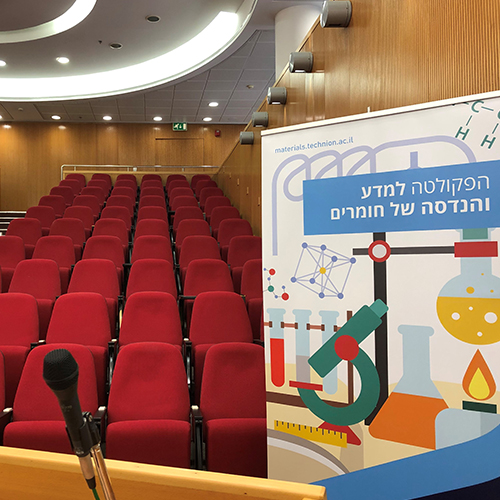
29/01/2026
אודיטוריום ע"ש דויד וואנג, בניין מידן, קומה
Dr. Shlomi Polani
Technical University Berlin
The synthesis of platinum-based catalysts for the cathode of proton exchange membrane fuel cells (PEMFCs) is a particularly active area aimed at meeting the technological requirements for activity and stability. However, developments in this area are still insufficient for the various applications of PEMFCs in the transportation sector. To enable widespread commercialization of light-duty vehicles, their high cost must be reduced by fabricating more active catalysts and lowering the high Pt loading at the cathode, required for the oxygen reduction reaction (ORR) sluggish kinetics, to less than 0.125 gPt cm-2. In addition, improvement in catalyst stability is also required for these applications (8,000 h of durability).
The search for active and durable ORR catalysts led to the fabrication of "small" 4-9 nm Pt-rich shape-controlled PtNi nanoparticles enclosed exclusively with PtNi(111) facets. Although these catalysts have been showing increasing activity over the years, they suffer from poor stability and reach only one-tenth of the intrinsic activity of the corresponding PtNi(111) single crystal.
In this talk, I will present our most recent developments of novel syntheses protocols and applied post-synthesis treatments to produce octahedral PtNi catalysts with improved ORR activity and stability. Our catalysts showed significant improvement over the benchmark catalysts (reaching 4.5 A mgPt-1 @0.9 VRHE) in various experimental electrochemical setups used to evaluate their performance and stability. We also employed advanced microscopy and (quasi-)in-situ techniques to monitor their morphological, compositional and thermal stability.
Our results serve as a synthesis guide for the production of active and stable electrocatalysts for the next generation of transportation technologies.


